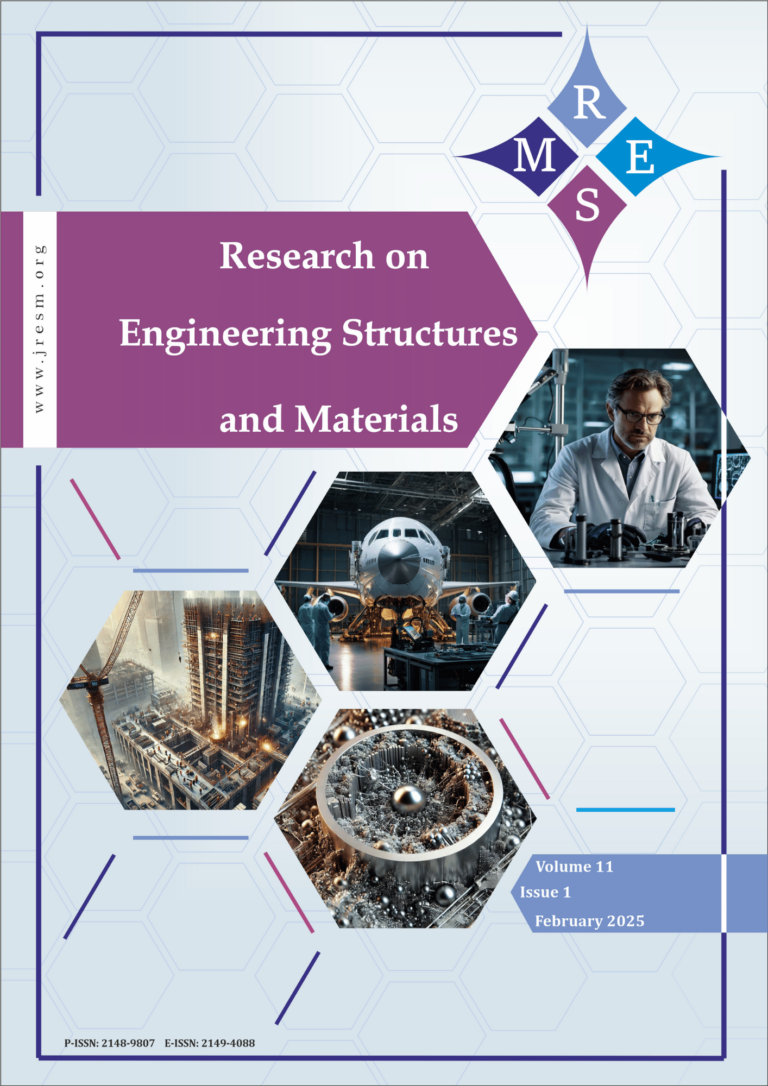Recieved:
Accepted:
Page:
–
doi:
Views:
Cite this article as:

Research on Engineering Structures and Materials (RESM) is a peer-reviewed platform dedicated to advancing innovation and fostering collaboration in structural engineering and materials science. RESM bridges cutting-edge research and practical applications, addressing complex challenges in engineering and construction. With a focus on advancing knowledge and shaping sustainable solutions, RESM invites contributions that explore the intersection of discovery, application, and innovation in engineering.
Kemalöz Mah. 3. Bilgi Sok. 4A/13 Uşak/Türkiye
Powered by Li.